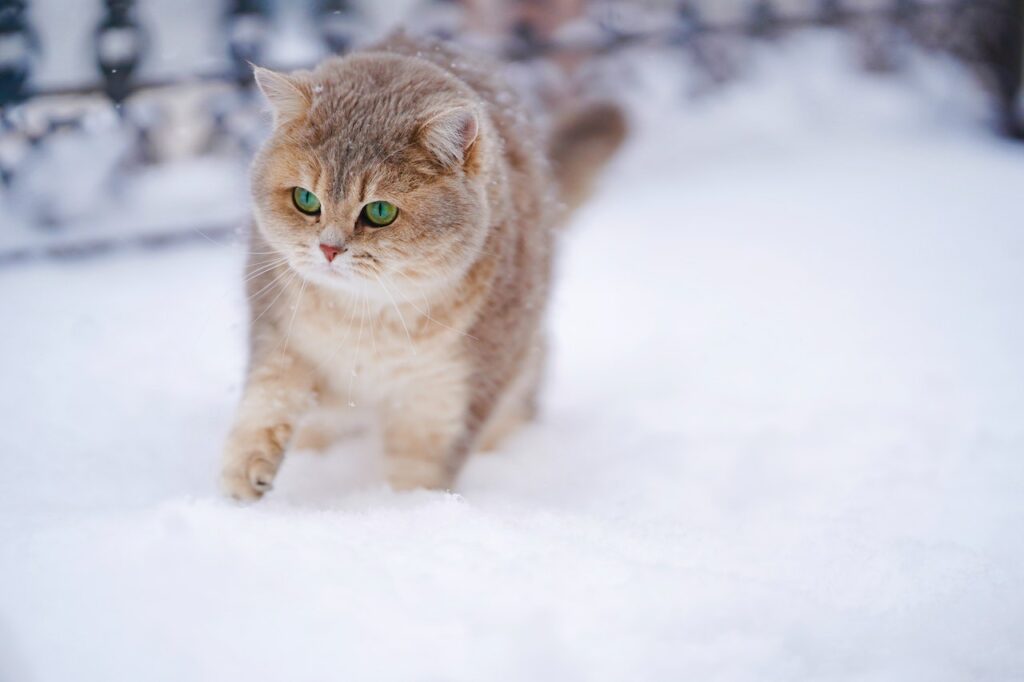Discover how fast cats can run – A look at how cats compare to other animals
Do you ever find yourself wondering how fast cats can run? Have you ever wondered how a cat’s running speed compares to other animals, such as dogs and horses? If so, then this article is for you. Here we’ll explore how cats are known for their agility, grace and speed, but how fast do they reach when running? We’ll also discuss how different breeds of cats, age, size, and other factors affect the speed at which they can run. So if you’re curious about how fast your feline friend can go or simply want to know more about the world of animal speeds overall – read on!
Breeds & Temperaments
When it comes to running speed, the breed of a cat is one of the main determinants. Larger breeds such as Maine Coons, Ragdolls, and Norwegian Forest cats usually have slower running speeds than smaller breeds like Siamese, Bengal cats, or Oriental Shorthairs. In addition to breed size, temperament also plays a role; more active or playful cats tend to have quicker reflexes than more sombre or reserved ones.
Top Running Speeds
The fastest recorded top speed for a domestic cat is 31 mph (49 km/h), achieved by a cheetah-like feline named Dusty in April 2015. Other “speedsters” with reported speeds ranging from 25 mph (40 km/h) up to 30 mph (48 km/h) include Savannah cats and cheetahs – both wild and domesticated varieties of these animals can hit such speeds in short bursts.
Average Running Speeds By Breed
Below is a list of average running speeds for various breeds sorted by size:
Small Breeds: 7-13 mph (11-20 km/h)
- Siamese
- Bengal Cat
- Oriental Shorthair
Medium Breeds: 6-9 mph (9-14 km/h)
- American Shorthair
- Persian Cat
Large Breeds: 5-8 mph (8-12km/h)
- Maine Coon
- Ragdoll
- Norwegian Forest Cat
Factors That Affect Feline Speed
Several factors can affect how quickly your kitty runs. Physical health is an important factor – if your cat is out of shape due to lack of exercise or other health issues, then he won’t be able to reach his full potential when it comes time to race you across the yard! Diet can also play a role here; ensure your feline friend has plenty of access to nutritious kibble that is high in protein so he has enough energy to tackle any challenge! Distractions such as toys or other animals will also slow him down significantly, so try not to bring too many objects into the running area before testing your cat’s speed. Finally, the terrain can also affect running speed; hard surfaces like asphalt or concrete will allow your pet more traction, while softer surfaces like grass may make it difficult for him to get any real momentum going.
Conclusion
In conclusion, each cat breed will have its particular top speed depending on its size and temperament; however, most domestic felines will generally range anywhere from 5-15 mph (8-24 km/h). Owners need to remember that multiple factors are at play when assessing their pet’s capabilities, so it’s best not to rely on just one metric alone when evaluating their abilities!
Ready to see how fast your kitty can go? Make sure your pet is properly insured with Furrr.co.uk before you start timing their racing abilities – that way, in any unexpected accidents or illnesses; you’ll have peace of mind knowing that your furry friend is covered! Get started today and keep running towards a brighter tomorrow for you and your feline friend! For more information about how cat speeds vary from breed to breed and how to assess the speed of your pet, visit the Furrr.co.uk website today!










